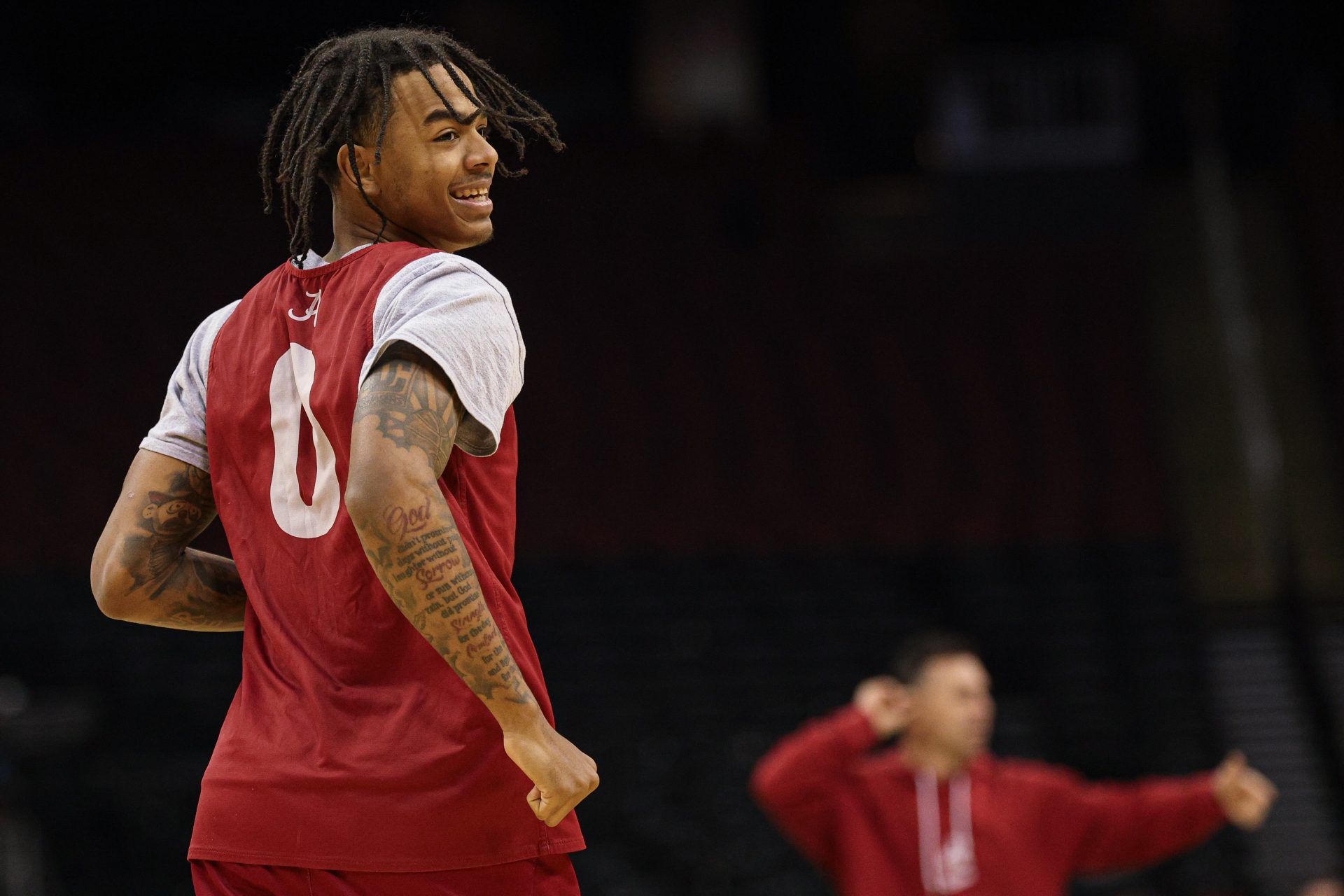Yesterday, with just 29 minutes left before the NBA Draft withdrawal deadline, Labaron Philon stunned the basketball world. The Alabama Crimson Tide guard, widely expected to pursue his professional dreams, announced his return to college for another season.
This last-minute pivot, shared via social media by the collective, capped weeks of speculation about his future. Earlier in the month, Philon had declared himself “all-in” on the 2025 NBA Draft. Still, as the clock ticked down, he chose a different path, one rooted in stability and opportunity over the unpredictability of the pros.
The Path to the NBA: Philon’s Draft Prospects
Philon, a dynamic freshman guard, had called attention with his standout play at Alabama. His skills on the court earned him a spot among the top prospects for the upcoming draft, with CBS Sports analyst Gary Parrish noting he ranked in the top thirty on Cal Boone’s Big Board.
Yet, despite his promise, the decision to return to college has sparked debate. Was it a missed opportunity, or a calculated move that could pay off bigger than an NBA deal?
Philon’s freshman campaign at Alabama showcased his potential as an NBA-caliber talent. His ability to score, facilitate, and compete at a high level drew attention from scouts across the league. By all accounts, he was on track to hear his name called in the 2025 NBA Draft.
Analysts pegged him as a possible late first-round pick, though others saw him sliding into the second round.
Parrish said, “He would have been picked somewhere, and he would have been given a contract of some sort.” But where he landed, and what that contract entailed, remained a roll of the dice.
The NBA Draft offers a clear divide between first- and second-round selections. First-round picks secure guaranteed multi-year contracts, often worth millions, along with a more straightforward path to playing time and development. Second-rounders, however, face a more challenging road.
Many end up with two-way contracts, splitting time between the NBA and G League, earning roughly $500,000 for a single season. For Philon, staying in the draft could have meant anything from a coveted first-round slot to a less secure second-round deal, with no certainty about his team, coach, or role.
This uncertainty loomed large. Parrish highlighted the unknowns: “You don’t know where you’ll get picked, you don’t know how much you’ll make, you don’t know where you’ll live, you don’t know who’s going to coach, you don’t know who your teammates are going to be.”
For a young athlete on the cusp of a life-changing decision, these variables painted a risky picture. Entering the draft might have launched his pro career, but it also carried the chance of a shaky start, especially if he fell outside the first round.
The Appeal of College: Stability and Financial Incentives
With the draft’s unpredictability in focus, Philon weighed his other option: returning to Alabama. This path offered a stark contrast, blending stability with tangible benefits. At Alabama, Philon would step back into a starring role on a preseason top 20 team, poised to chase an SEC championship.
His spot as a starter was secure, his coach and teammates familiar, and his environment known. Parrish captured the appeal: “Come back, be a starter on a preseason top 20 team, trying to win an SEC championship, and we will be able to give you more money than what is possible you would have to settle for if you remained in the NBA draft.”
Since the NCAA greenlit NIL opportunities in 2021, athletes can profit from their brand through endorsements and sponsorships. For Philon, returning to Alabama meant tapping into a lucrative NIL package, reportedly outpacing what a second-round NBA deal could offer. While exact figures remain undisclosed, the precedent is telling.
KEEP READING: Why College Basketball Players Keep Transfer Options Open After Declaring for the NBA Draft
For instance, Texas Tech’s JT Toppin entirely opted out of the draft process, securing an NIL deal worth around $4 million, per CBS Sports’ Matt Norlander. Philon’s situation mirrors this trend, suggesting college could be a financial goldmine.
College Sports Network has you covered with the latest news, analysis, insights, and trending stories in college football, men’s college basketball, women’s college basketball, and college baseball!


